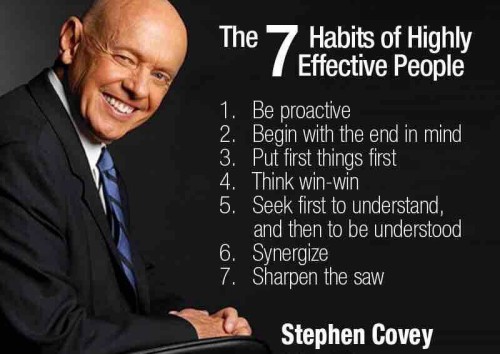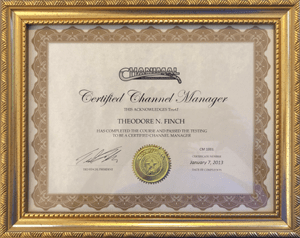Emotional Bank Accounts
Emotional Bank Accounts
Building relationships with accounts, team members or anyone (including spouses and kids) can be likened to an “emotional bank account.” This concept was popularized in the book, “Seven Habits of Highly Successful People,” from Stephen R. Covey.
Every time we do something positive (compliment, help with training, listen intently, respond quickly, etc.) we make a positive deposit in the relationship’s emotional bank account. Every time we do something negative (criticize, ignore, are curt, make demands, etc.) we make a withdraw. The key to building and maintaining relationships is to ensure we have a large positive balance.

For example, if you listen to a partner, or provide them the information they request quickly, you might make a $10 deposit in your combined account. By making enough positive deposits, you can build a very strong relationship.
All deposits are also not the same–even among different people. Listening to one person may make a $10 deposit, while it may be worth $50 to another. As we build closer relationships we learn which deposits have the most value per person, which is critical, since we want to deposit the most in the shortest amount of time. Especially with team building and account management.
When we are “dating” a potential spouse, we become attuned very quickly to the value of our deposits–usually evident by a reciprocal deposit made by the other person. In business, we have to be especially sensitive to understand what a person values most to build the strongest relationships.
Switch From Utility to Friendship
Most business relationships start off as utility relationships–we stay friends and maintain the relationship so long as we make more money or meet our objectives together. However, our job is to turn utility relationships into real friendships by constant and consistent deposits. This is how we build strong account relationships. We know we have arrived when they call us “as a friend” when another company is trying to get into the account. It also builds strong teams as everyone learns that you genuinely care about them and the relationship you have.
It is also important to note, that negatives often withdraw as much as five times the value of a similar deposit, since the negative act (criticism in public, not following up on your promise or deliverable, etc.) is a withdraw, but it also demonstrates a lack of trust and consistency–which is an even greater negative.
Knowing this concept, we can proactively do things to build accounts and personal relationships. We can make note of their birthday, anniversaries, schedule consistent return calls, etc. It starts as contrived (but it eventually becomes internal and sincere), but works the same since it gets us engaged and makes positive deposits to the relationship. The result, we have stronger teams, closer account management, and we build deposits deep enough that they can weather the storm if we ever have to make withdraws (such as running late to a meeting, have to coach them to get improvement, etc.).
Review Questions
- How can building strong emotional bank accounts help build the business?
- List five things you can do to make a deposit with one of your accounts/team members?
- Who will you teach this concept to?
Contact Info
Chanimal, Inc.
12109 Lake Stone Dr
Austin, TX 78738
512-263-9618
Click HERE to Email
Follow us on Facebook
NOTICE
I join a LOT of affiliate programs (connoisseur–like to see what they do), including Amazon, so there may be links throughout Chanimal.

